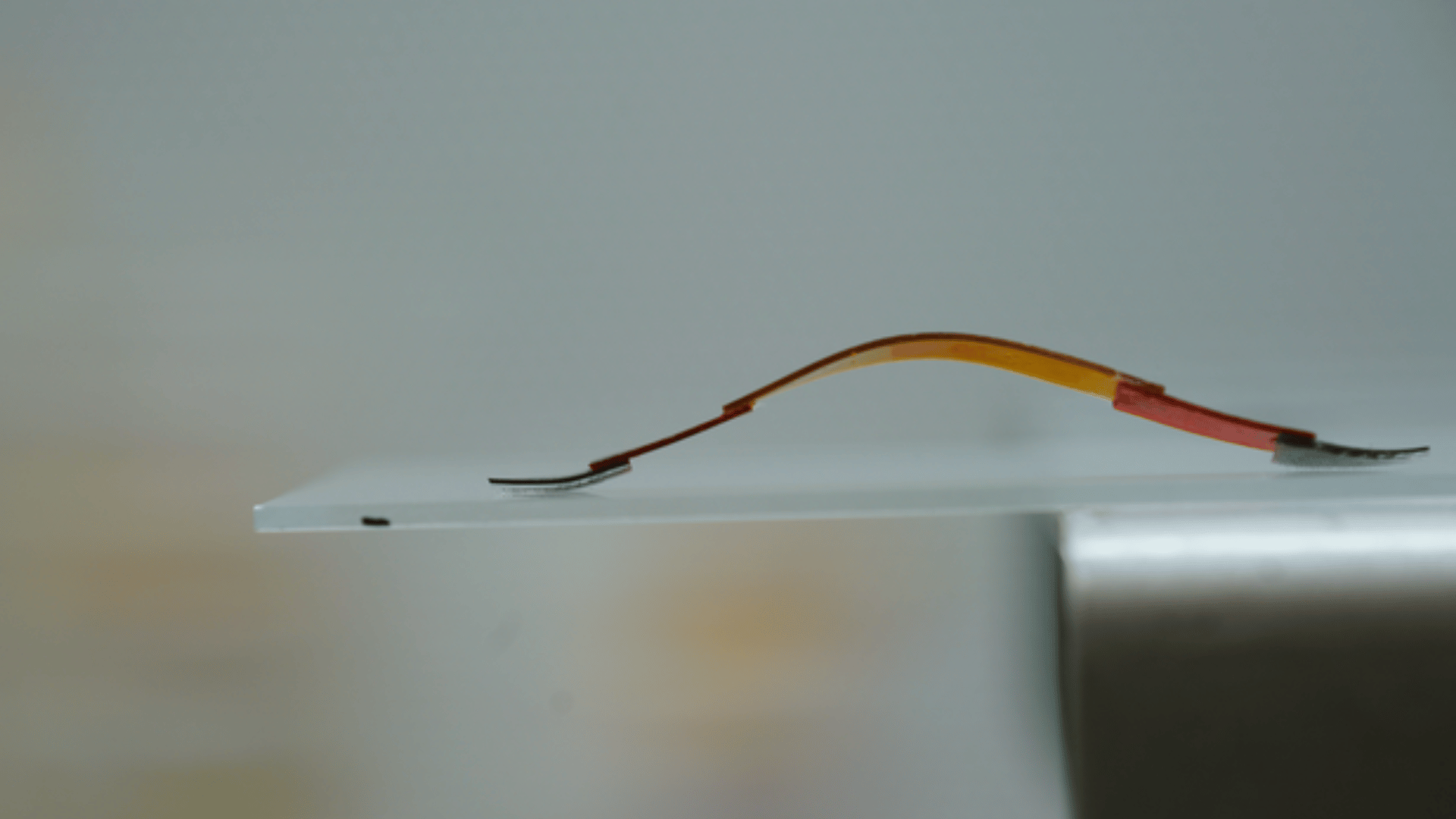First-of-its-kind gecko robot could one day help doctors in surgeries


What is GeiwBot, the soft robot in healthcare?
“This work is the first time a holistic soft robot has climbed on inverted surfaces, advancing state-of-the-art soft robotics innovation,” said Dr. Boxin Zhao in a press release, a professor of chemical engineering.
“We are optimistic about its potential, with much more development, in several different fields,” he added.
Dubbed GeiwBot, the robot was created from a smart material that can be molecularly changed to resemble how geckos stick and unstick their powerful grippers on their feet.
This allows the four-centimeter-long, three-millimeter-wide, and one-millimeter-thick robot to climb a vertical wall and cross a ceiling without being connected to a power source.
Zhao and his team built GeiwBot utilizing synthetic adhesive pads and liquid crystal elastomers. Essentially, a light-responsive polymer strip simulates an inchworm-like arching and stretching action. On the other hand, gecko-inspired magnet pads perform the grabbing at either end.
“Even though there are still limitations to overcome, this development represents a significant milestone for utilizing biomimicry and smart materials for soft robots,” said Zhao.
“Nature is a great source of inspiration, and nanotechnology is an exciting way to apply its lessons.”
Significantly, an untethered soft robot opens the door for possible surgical applications via remote control inside the human body. During rescue operations, it could also help sense or search hazardous or difficult-to-reach regions.
The next stage for researchers is to create a climbing soft robot that is entirely powered by light and does not require a magnetic field. Additionally, the future robot would employ near-infrared rather than UV light to increase biocompatibility.



